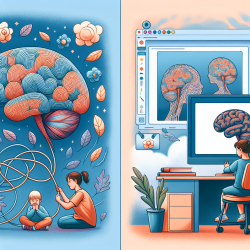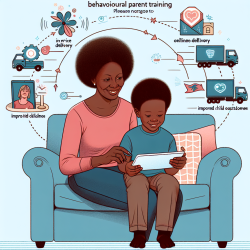Introduction
In the ever-evolving field of speech-language pathology, it is crucial for practitioners to remain informed about global issues that could indirectly impact their practice. The recent research titled A crack in the facade? Situating Singapore in global flows of electronic waste by Josh Lepawsky and Creighton Connolly, published in the Singapore Journal of Tropical Geography, provides insights that can be leveraged to enhance online therapy services, such as those offered by TinyEYE. This blog post explores how the findings from this study can be applied to improve outcomes for children receiving online therapy services.
Understanding the Research
The study examines Singapore's role in the global flow of electronic waste (e-waste) and its implications under the Basel Convention. It highlights Singapore's position as a key node in the trade of discarded electronics, which are often repurposed rather than simply disposed of. This research underscores the importance of viewing territories not just through political or economic lenses but as dynamic entities influenced by various factors, including environmental regulations and market forces.
Application to Online Therapy
Online therapy services, such as those provided by TinyEYE, rely heavily on technology. Understanding the lifecycle of electronic devices and the global flow of e-waste can inform decisions about technology acquisition, usage, and disposal. Here are some ways practitioners can apply insights from the research:
- Technology Selection: Choose devices that are durable and can be easily upgraded or repurposed, reducing the need for frequent replacements and minimizing e-waste.
- Sustainable Practices: Implement policies for the responsible disposal and recycling of electronic devices used in therapy sessions.
- Awareness and Education: Educate clients and their families about the environmental impact of e-waste and promote sustainable practices in their use of technology.
Encouraging Further Research
The study by Lepawsky and Connolly opens the door for further research into the intersection of technology, environmental policy, and therapy practices. Speech-language pathologists are encouraged to explore the following areas:
- Impact of E-Waste on Health: Investigate potential health implications of e-waste exposure, particularly in children, and how this might affect therapy outcomes.
- Technological Innovations: Explore new technologies that reduce e-waste and enhance the delivery of online therapy services.
- Policy Development: Contribute to the development of policies that promote sustainable practices within the field of speech-language pathology.
Conclusion
By integrating insights from global research on e-waste, speech-language pathologists can make informed, data-driven decisions that enhance the efficacy and sustainability of online therapy services. Practitioners are encouraged to delve deeper into the findings of Lepawsky and Connolly's study to further refine their practices and contribute to positive outcomes for children.
To read the original research paper, please follow this link: A crack in the facade? Situating Singapore in global flows of electronic waste.










